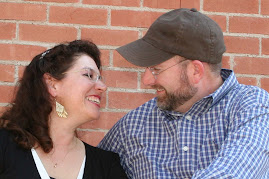Get rid of the old yeast that you may be a new batch without yeast—as you really are. For Christ, our Passover lamb, has been sacrificed. Therefore let us keep the Festival, not with the old yeast, the yeast of malice and wickedness, but with bread without yeast, the bread of sincerity and truth. 1 Cor. 5:7-9
One of my friends has an allergy to gluten. As such, she is constantly reading labels and choosing her foods carefully to avoid becoming ill. Last year, I had a student with a severe peanut allergy. If he consumed any food that had even touched peanuts, he could go into anaphylactic shock and even die. As I was reading a label one day on some snacks I was buying for my class, I noticed it said, “Product was made in a plant that also processes peanuts.” Even though there was not a single peanut in the snack, he could still have a reaction from a seemingly “clean” food. I could not risk the possibility that it may have come in contact with the dust of peanuts. If it had, the results could have been catastrophic for that young man. For him, the price of eating a peanut could be death.
In the Scriptures, we are told that the wages of sin is death. Oftentimes, God uses yeast to symbolize sin. God even told His people to prepare the grain offerings without yeast. With yeast, the offering was unacceptable. Without yeast, it was an aroma pleasing to the Lord. During the Feast of Unleavened Bread, the people were commanded to prepare and eat only unleavened bread for seven days in order to commemorate the quick flight out of Egypt. They were told to do this every year so that they would always remember how God had saved them from their bondage to Egypt.
God called His consecrated people to share in the feast. In fact, in 1 Corinthians, Paul connected the Feast of Unleavened Bread to Jesus. He reminded the people that in Christ, they were a new batch without yeast. He told them to keep the Festival with the bread of sincerity and truth. How interesting since Jesus referred to Himself in John 6:35 as the Bread of Life; and in John 6:51 He said, “I am the living bread that came down from heaven.”
All things considered, I decided this year to celebrate the Feast of Unleavened Bread out of reverance for God, who ordained the Feast, and love of the Messiah, who personified the Feast. For seven days, I checked every label on every package to make sure the food I ate had no leavening agents in it. During the seven days, every meal reminded me of God who saved His people out of Egyptian bondage and who saved me from the bondage of sin. At the end of the week, God spoke. He taught me a lesson that humbled me in a mighty way.
You see, my friend checks labels to avoid getting sick; the young man stays away from peanuts so he doesn’t die; I scrutinized everything that week to avoid yeast in order to honor God. Yeast represents sin. Sin leads to death.
As I contemplated the events of the week, the Lord brought to mind a fantastic realization. As closely as I checked those packages for yeast, God wants me to check my life daily for sin. Sure, I avoided yeast, the symbol of sin, but did I avoid sin itself? Do I typically search my heart and scrutinize my actions in an effort to glorify God? The Feast of Unleavened Bread lasts only seven days, but my commitment to become holy just as He is holy is an ongoing process.
The days before Passover and the Feast of Unleavened Bread, Jewish families totally rid their homes of all yeast as God commanded them to do. Traditionally, it is the most thorough house cleaning of the year. The removal of the yeast from the home is a reminder to them and to us to eradicate all traces of sin from our lives. Our bodies are the temple of God. Our bodies are holy; and as God’s redeemed people, there should be no sin in us. “He appeared so that He might take away our sins. And in Him is no sin. No one who lives in Him keeps on sinning.” 1 John 3:5,6.
The lesson I learned from the Feast of Unleavened Bread was to take every thought captive and make it obedient to Messiah, 1 Cor. 10:5; to make the words of my mouth and the meditation of my heart pleasing in God’s sight, Ps. 19:14; and to purify myself just as He is pure, John 3:3.
Jesus is the Unleavened (Sinless) Bread of Heaven…the Bread of sincerity and truth. Anyone who eats of this Bread will not be hungry. Blessed be God who has given us the Bread of Life.
I Love My Sweetie

I Love My Sweetie
Monday, April 25, 2011
Tuesday, April 19, 2011
The Passover Movie
Have you ever wondered why Cecil B. DeMille’s movie, The Ten Commandments, always seems to come on TV during the Easter season? What could it possibly have to do with the death, burial, and resurrection of Jesus? Actually, a lot more than you might think.
After doing a little research, I discovered that not only was Mr. DeMille Jewish, but that the movie is slated to air each year during the week of Passover. Is it possible that this movie was Cecil B. DeMille’s way of obeying a commandment from God? Let me explain.
Before God delivered the Israelites from Egypt, He gave them precise instructions regarding the Passover. He told them to kill an unblemished lamb, roast the meat, and put the blood on the doorposts of their homes. They were commanded to eat the lamb, which represented their salvation; eat bitter herbs, which represented slavery; and eat unleavened bread, which represented the haste with which they fled. He told His people that He wanted them to celebrate and retell the story of the Passover each year as a reminder of His deliverance. I wonder if the movie is Cecil B. DeMille’s way of making sure that the story is retold every year at Passover just as the Lord commanded.
Two-thousand years after the exodus, the Messiah sat at a Passover table eating the lamb, the bitter herbs, and the unleavened bread. At the end of the meal, after the story of the Passover was retold, Jesus held up the bread that was traditionally hidden until the end of the meal and which represented the Bread of Life who was to come, and said, “This is my body.” He also took the cup of wine, which was known as the Cup of Redemption, and said, “This cup is the new covenant in my blood which is poured out for you.” And just as the Father established the Passover as a time of remembrance, the Son reiterated that when He said, “When you do this, do it in remembrance of me.”
Now, another two-thousand years later, Jews and many Christians are preparing to celebrate the Passover again this week. The story of the Passover and exodus from slavery will be retold as people celebrate God’s faithfulness and salvation. And in Christian homes, the story will come full-circle because of Jesus who is our salvation. Believers who celebrate the Passover see Jesus as the Passover lamb; they eat the bitter herbs to remember the bitterness of slavery to sin; they eat the unleavened bread which represents the Bread of Life; and drink the cup in honor of the One who redeemed us with His own blood. They will recount the story of the exodus from slavery to Egypt as well as our exodus from the slavery of sin.
So, get ready. Passover began yesterday evening at sundown. The celebration will last a full week. Sometime during this next week you can expect to see The Ten Commandments on TV. Let it serve as a reminder to you of God’s salvation. Both stories are significant to us as God’s children. In fact, they are so intertwined that we can see they are truly the same story…the Redeemer is the Lord and the people saved are those who put their faith and trust in Him. What an awesome God we serve. He is the God of Salvation, and He commands us to remember His faithfulness from generation to generation.
After doing a little research, I discovered that not only was Mr. DeMille Jewish, but that the movie is slated to air each year during the week of Passover. Is it possible that this movie was Cecil B. DeMille’s way of obeying a commandment from God? Let me explain.
Before God delivered the Israelites from Egypt, He gave them precise instructions regarding the Passover. He told them to kill an unblemished lamb, roast the meat, and put the blood on the doorposts of their homes. They were commanded to eat the lamb, which represented their salvation; eat bitter herbs, which represented slavery; and eat unleavened bread, which represented the haste with which they fled. He told His people that He wanted them to celebrate and retell the story of the Passover each year as a reminder of His deliverance. I wonder if the movie is Cecil B. DeMille’s way of making sure that the story is retold every year at Passover just as the Lord commanded.
Two-thousand years after the exodus, the Messiah sat at a Passover table eating the lamb, the bitter herbs, and the unleavened bread. At the end of the meal, after the story of the Passover was retold, Jesus held up the bread that was traditionally hidden until the end of the meal and which represented the Bread of Life who was to come, and said, “This is my body.” He also took the cup of wine, which was known as the Cup of Redemption, and said, “This cup is the new covenant in my blood which is poured out for you.” And just as the Father established the Passover as a time of remembrance, the Son reiterated that when He said, “When you do this, do it in remembrance of me.”
Now, another two-thousand years later, Jews and many Christians are preparing to celebrate the Passover again this week. The story of the Passover and exodus from slavery will be retold as people celebrate God’s faithfulness and salvation. And in Christian homes, the story will come full-circle because of Jesus who is our salvation. Believers who celebrate the Passover see Jesus as the Passover lamb; they eat the bitter herbs to remember the bitterness of slavery to sin; they eat the unleavened bread which represents the Bread of Life; and drink the cup in honor of the One who redeemed us with His own blood. They will recount the story of the exodus from slavery to Egypt as well as our exodus from the slavery of sin.
So, get ready. Passover began yesterday evening at sundown. The celebration will last a full week. Sometime during this next week you can expect to see The Ten Commandments on TV. Let it serve as a reminder to you of God’s salvation. Both stories are significant to us as God’s children. In fact, they are so intertwined that we can see they are truly the same story…the Redeemer is the Lord and the people saved are those who put their faith and trust in Him. What an awesome God we serve. He is the God of Salvation, and He commands us to remember His faithfulness from generation to generation.
Subscribe to:
Posts (Atom)












